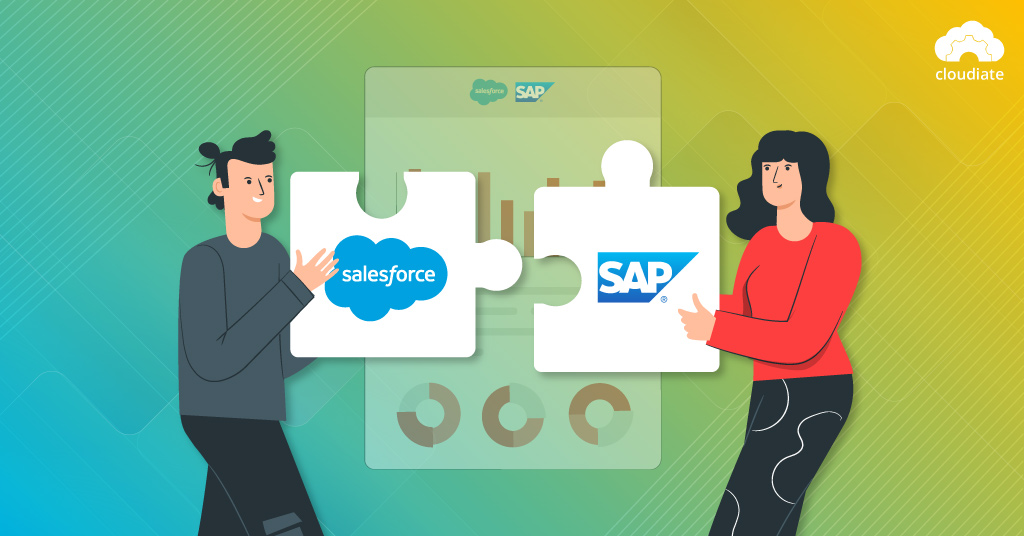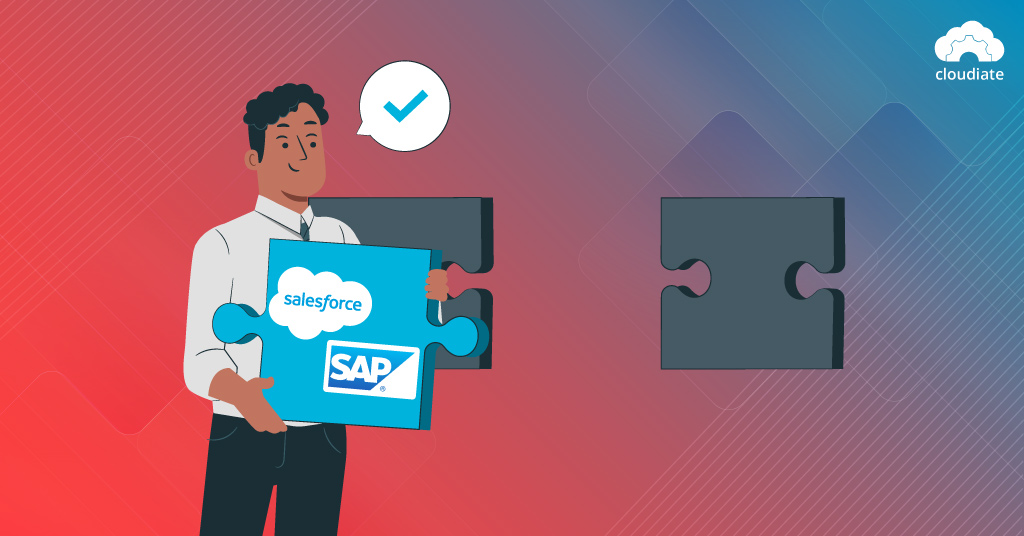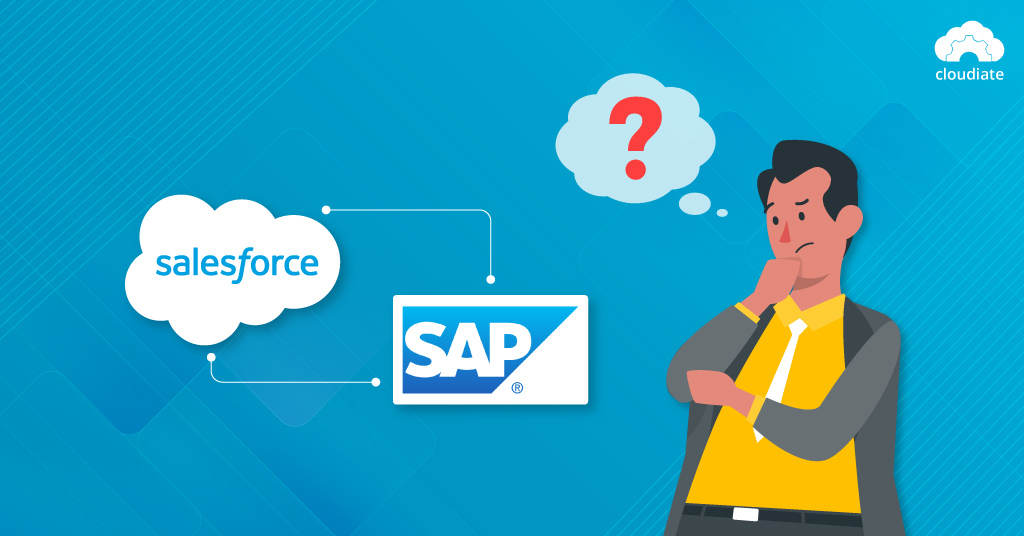There is a common misconception that Salesforce and SAP integration is a piece of cake. It’s not.
Salesforce and SAP integration requires careful planning and execution, as everything is not inherently integrated.
Salesforce and SAP integration can be a time-consuming and challenging process. However, some companies specialize in simplifying it. If a company wants to integrate its Salesforce CRM with its enterprise resource planning (ERP) system, it needs to find an experienced company to help navigate this complex process.
What Is SAP and Salesforce Integration, and Why Do People Want It?
SAP is a German company that produces and sells enterprise software. It was founded in 1972 by five former IBM employees in Walldorf, Germany. SAP provides various solutions to help enterprises of all sizes and industries to operate more efficiently. SAP is an acronym for Systems, Applications, and Products in Data Processing. SAP’s solutions are built on enterprise resource planning (ERP) principles that enable companies to manage their supply chains and production processes.
Salesforce, as a customer relationship management system, has assisted many companies in managing their sales pipeline, marketing campaigns, and customer service.
Salesforce is a CRM system, and SAP is an ERP system. Integrating these two systems can provide more accurate data and a better customer experience.
There are many advantages of using Salesforce + SAP integration, including creating reports from data stored in both systems. It also allows both companies to share their expertise and improve their services for their customers, manage customer data, and automate processes.

Salesforce and SAP Integration: The Biggest Challenge in the Industry
The Salesforce and SAP integration processes are eerily convoluted. There is no one-size-fits-all solution for these projects. The approach can vary depending on the type of integration project, the system’s complexity, and your organization’s size.
Salesforce CRM data migration using existing Extract, Transform, and Load (ETL) tools might be convenient in the beginning stages of integration as tasks, like user mapping, are relatively simple. ETL takes data from various sources, transforms it into a normalized format, and loads it into the target system. But when your IT team needs to map complex yet important data, like sales and delivery information, the integration would seem like an arduous task.
With the new wave of digitalization, companies are trying to find ways to optimize their processes and integrate them seamlessly. And process integration is a massive part of that.
Data mapping and synchronization can no longer keep up with rapid technological change. Process integration is much more effective because it integrates the business processes of different companies and allows for real-time collaboration.
You transition from a basic CRM system with few data dependencies to a complicated ERP system with essential data, and specialized skill sets to connect processes. This is not a data mapping/syncing activity but a business process integration exercise.
Find Solutions for Your Salesforce and SAP Integration Woes

Although integrating customer relationship management (CRM) with enterprise resource planning (ERP) has been a common practice for over a decade, a new impediment has emerged.
CRM and ERP are two of the most used business applications. However, many businesses need help to mix the two. Before the widespread use of Salesforce, the integration of ERP and CRM often included integrating two or more locally hosted systems.
In contrast, integrating SAP with Salesforce necessitates a creative approach considering the underlying technological differences between SAP and Salesforce.
Process integration allows different software programs to work together. A CRM system such as Salesforce or ERP from SAP captures and leverages customer data. It bridges the gap between these two platforms by sending data back and forth for both CRMs to function. Process integration is the way to go when combining data from different sources without depending on ETL.
Get Started With Your Successful Salesforce and SAP Integration
When it comes to Salesforce and SAP Integration, a Salesforce consulting partner is the go-to for any project, big or small. They have experts who know how to deal with these issues and provide various solutions for configuration, training, migration, and more.
However, one must understand the pricing of integration services and what they cover to avoid expensive mistakes.
Cloudiate can assist you with Salesforce and SAP integration so that you can concentrate on developing your business. We are a registered Salesforce Implementation Partner that works with startups, corporations, and non-profit organizations to assist them in maximizing their use of Salesforce.
With decades of experience in the IT industry, Cloudiate’s experts can help you with all sorts of Salesforce and SAP problems. Whether you are looking for someone to help with implementation or training, our team can meet all your needs.
Contact our team of specialists to learn more about the services we offer.

